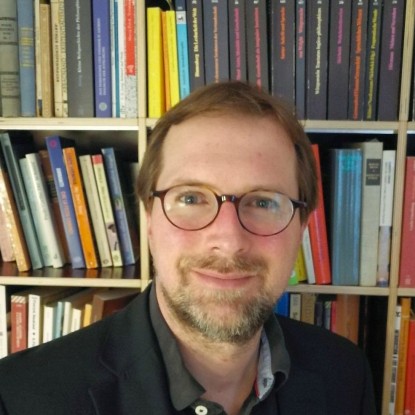What is the M.A. programme about?
This interdisciplinary and international Master of Arts teaches you how to handle and interpret data to explore and understand social and historical discourses. You will study innovative state-of-the-art methods of discourse analysis with leading scholars from history, computer science, philosophy, politics, sociology, literary studies, and linguistics. This unique interdisciplinary setting will present you with cutting edge research to further your understanding of how language, knowledge, and society work together when creating new ideologies, scientific conclusions and legislation processes. The M.A. programme is taught in English in an inspiring international setting bringing together students from all over the world. We will encourage and support you to spent a semester abroad studying at one of our international partner universities including Tongji University Shanghai, Beijing Foreign Studies University, and Aarhus University.
In short, the MA provides you with an opportunity to further develop your ability to detect, analyse, categorise, interpret and critically reflect knowledge from linguistic and visual data. You will also refine your skills to process and present your results tailored to the needs and expectations of a specific audience.
Skills
After graduation, you will have acquired the knowledge and the skills to select and use the appropriate tools not only to edit, categorize and measure digital data but to analyse political, social, scientific and historical discourses. You will be able to apply these skills to current questions in research, science, and society and you will have gained experience in writing texts with a specific reader in mind based on your applications. You will experience research-oriented forms of teaching and learning which will ensure an outstanding professional qualification on the cutting edge of science. As the M.A. programme is geared towards international research and education, you will have gained rich experience in multi-cultural contexts.
Career Opportunities
The M.A. Data Discourse Studies provides training and qualification for future-oriented jobs in the fields of communication, analysis, policy for government, and writing including data driven journalism, marketing, marketing research, public relations, consulting or corporate communications. With more and more professional fields relying on data, you will be able to collaborate directly with computer science departments to produce e. g. strategy papers and company reports.
Specific entry requirements notwithstanding, you will have gained the qualification to join a PhD programme and to pursue an academic career in one of the related disciplines history, computer science, philosophy, politics, sociology, literary studies, and linguistics.
Key information
- Duration: 2 years (part- time or full-time studies)
- Language: English
- Entry Requirements:
- Bachelor’s Degree in one of the following disciplines is required: history, linguistics, literary studies, philosophy, political science, sociology, or related subjects
- Language Requirements: TOEFL-Test, Unicert
General information: MA Data and Discourse Studies
Application: Application and Admissions
Information for Prospective Students at Technische Universität Darmstadt
Course structure
The Masters programme starts with an introductory part (core area), in which basic concepts, models, theories and methodologies of dealing with research data are taught and theories and methodologies of Discourse Studies are introduced. Furthermore, the core area deals with the basic concepts of philosophy of science which include not only classical concepts of empirical research but also the canon of methodology in humanities and social sciences. (10 CP)
The courses within the specialisation area focus on the development of methodological approaches of digital linguistics, digital literary studies, and sociology as well as the application to discourse analysis. In addition, overviews of the disciplines and research areas of digital humanities, governance, and modern and contemporary history are given. Practice classes teach methods for the treatment of research data including the creation, preparation and analysis of digital corpora and archives. The Discourse Analysis Project (guided self-study) offers the opportunity to pursue a specific research interest and serves as a direct preparation for the Masters Thesis. (50 CP)
The international area (viewport) includes a visit at one of our partner universities. The visit serves to deepen, expand and reflect knowledge acquired during the first year of the Masters programme. Alternatively, students may undertake an internship at a company or public institution in a sector relevant to the MA programme, e.g. data journalism, marketing, market research, public relations, business consulting, or corporate communications. The internship may also be done at one of the humanities or social sciences labs of Faculty 02 (e.g. Discourse Lab, LitLab). (30 CP)
Within the Thesis area, the students deepen, practice, and reflect their theoretical and methodological competences by writing the Master's Thesis. The thesis will serve as a basis for the final oral exam (viva). (30 CP)
All modules are graded based on module examinations and must be successfully completed. Module examinations may include oral and written exams, essays, and presentations.
Further information
- Degree Programme regulations M.A. Data and Discourse Studies (wird in neuem Tab geöffnet) (PO 2019, English)
- Degree Programme regulations M.A. Data and Discourse Studies (wird in neuem Tab geöffnet) (PO 2019, German, from page 59)
- Module Description M.A. Data and Discourse Studies (wird in neuem Tab geöffnet) (2019)
- Module Handbook Computer Science in M.A. Data and Discourse Studies (wird in neuem Tab geöffnet) (2019)



